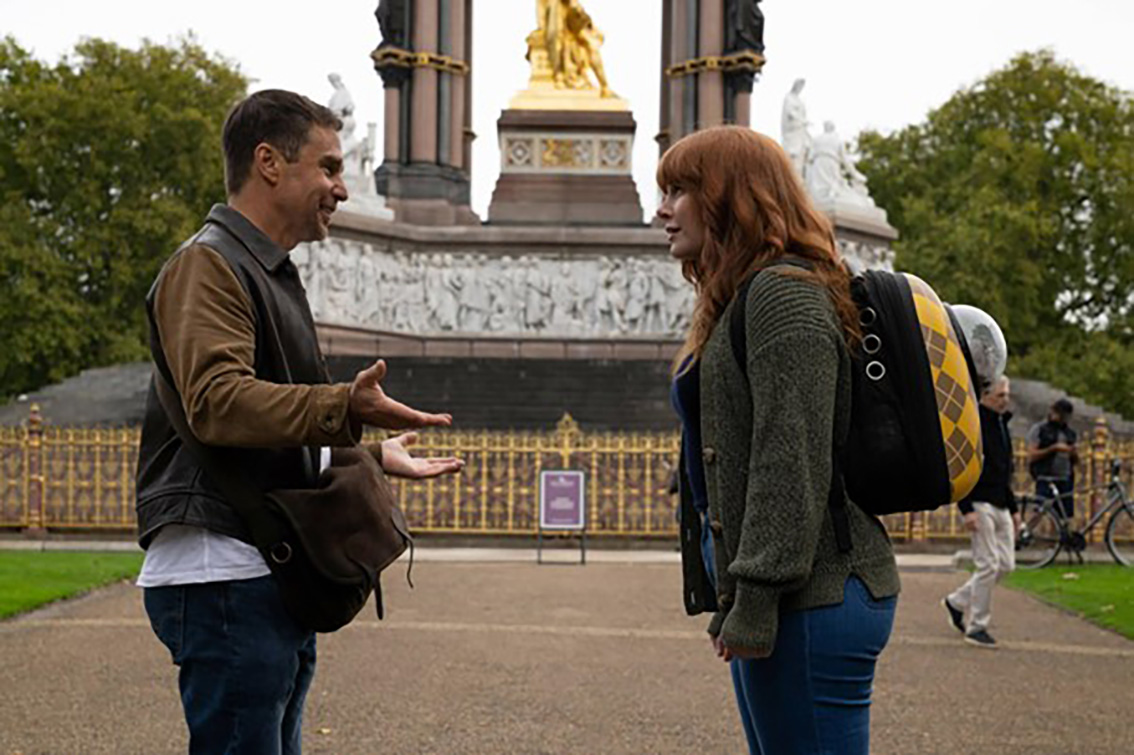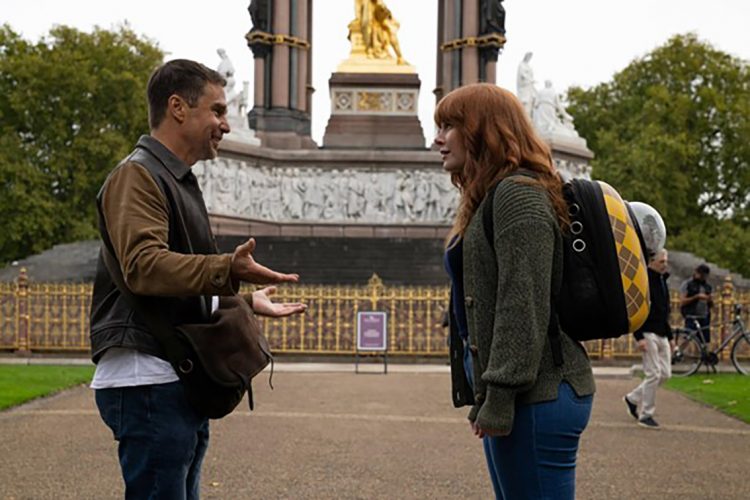What a coincidence that Matthew Vaughn’s action blockbuster comedy “Argylle” arrived to streaming on Apple TV+ at the tail-end of last week, the same week that saw online film enthusiasts grappling with the leaked industry responses from the March 28 screening of Francis Ford Coppola’s upcoming “Megalopolis”. Coppola has been trying to make his sci-fi epic for decades, and the leaked responses revealed a lot of hand wringing from studio executives dubious about the way to sell the film. More than the quality of Coppola’s first film in 13 years, which I have not seen, the concern was the difficulty of how to position it within the industry. How to make money from something that feels too out of step with the norm to sell to audiences?
Bilge Ebiri’s excellent piece on the Coppola crisis in Vulture later in the week, identified the need for Hollywood’s vision of its longevity to be about more than just penny-counting. Coppola’s work, even amidst the mixed reception for much of what he has produced since his critical apex in the 1970s, reflects a filmmaker interested in communicating something to his audience. Even when it fails, commercially or critically, it is failure that comes with a risk of daring to have a vision. And it’s a dynamic I could not help thinking of as I contemplated the more decisive failure of Apple TV+’s US$200 million blockbuster “Argylle”.
The sleight-of-hand opening sequences almost tricks you into thinking that “Argylle” might be doing something imaginative with winking knowingness to the way Vaughn seems to move between the familiar energy of his “Kingsman” series, and something different – if not necessarily better. We meet Argylle (Henry Cavill), a very suave spy working to infiltrate a glamorous club where a glamorous blonde temptress (Dua Lipa) is lying in wait. After a sultry dance, and a deluge of gunfire and daring escapes we realise that Argylle’s adventures come straight from the imagination of author Elly Conway (Bryce Dallas Howard), all part of her best-selling Argylle series. She is a homebody, seemingly happy in her isolation with her cat to keep her company but a case of writer’s block on the fifth instalment turns deadly when it turns out that Elly’s plotting is so prescient that an undercover agency is convinced that she is writing from classified knowledge. They’re on the hunt for her to get whatever information she has.
Sam Rockwell and Bryce Dallas Howard in “Argylle”
This set-up is not an inherent flaw in “Argylle”. Early on, when Sam Rockwell appears as an actual spy out to save Elly from the plots of the requisite bad-guys, there seems like enough potential here for something engaging if not wholly successful. But Jason Fuchs’ script becomes lost in a series of escalating revelations and twists amidst characterisation that often feels either plodding or opaque. By the time it hits the halfway point of its 139 minutes run-time, each minute begins to feel leaden with weight. It is a cumbersome experience when the film’s many escalations depend on establishing something, anything, for us to tie our interest to but the thinly drawn characters feel as indistinct as too many of the performances. Samuel L Jackson and Bryan Cranston appear trapped in roles that offer surface level memories of other, better movies with some point-of-view about those ageing spy-roles. Meanwhile, Bryce Dallas Howard is struggling to maintain a sincere perspective on Elly who has many qualities the film announces, but who feels insensible as a person to invest in and too opaque for the places the role takes her. Even if Catherine O’Hara and Sam Rockwell are trying their best to add their natural charm to their performances, “Argylle” cannot and will not meet them in writing, or direction, or lensing. It’s hard to pull natural energy from something so flaccid.
And that flaccidity overwhelms “Argylle”. It is a film which never feels meaningfully engaging, skating across the surface to its end and yet inanely prideful of its own emptiness. There’s a tiresome quality to the way it seems to always be looking forward to the next gaffe, or trick, never allowing its stakes or its emotions to settle with the audience. The tiring nail in the coffin of this kind of empty movement finds “Argylle” setting up a sequel and establishing itself as part of an existing film universe, which I won’t spoil but is likely to be unsurprising. I marvelled at the emptiness of the gesture and the entire ending sequences.
They don’t do much to add to “Argylle” in the way of nuance, nor do they offer anything in the way of challenging or even qualifying the more than two hours audiences have sat through. The belated flatness instead attempts to legitimise the film by making it part of more empty gestured promises for studios to spend millions of dollars on. And why? What is the draw here, I wonder? Like too many would-be blockbusters, “Argylle” retains a flat approach to its relationship with aesthetics and its story. The synthetic visual cadence, even in the purportedly fun action sequences, is dismaying to watch. There’s a centrepiece sequence late in the film where a figure-skating past becomes central to a job. I can see the seeds of the idea, and the actual action is not completely without merit – even as the frenetic editing interrupts it. But the lighting feels ambivalent about the story it’s telling. The blocking provides no insight into characters or stories. The plot developments offer no trust in its audience or any passionate interest in the people in this story, or their lives. Everything moves along at a plodding state of flatness. Risking little and achieving less.
The more I think of it, in juxtaposition with the current crisis Coppola finds himself in as the Cannes premiere of “Megalopolis” loops without a distributor willing to fund it, the more dismayed I am. Too much of the worst of “Argylle” feels like a crisis of imagination, a crisis of depth and a crisis of even sincere vision. And this is not a feeling of dismay predicated on a rose-tinted memory of the past. It’s not a disavowal of the fact that bad films have always existed but a startling awareness that the way that bad films exist these days are less predicted on a swing and a miss and merely on the laziness wrought from being risk averse. There isn’t even a swing here, just flat ambivalence. It’s deeply unpleasant to watch and also deeply sad as a query of what exactly studio executives think audiences are meant to glean from a film like this, other than training us to expect less from our films.
“Argylle” reminded of the kind of album a not-quite-committed pop-star wannabe might release. They would identify 2 or 3 songs that are built in the image of hits, and then pad the album with 9 or 10 other songs to justify its existence. There’s an element of this in the way “Argylle” often finds itself working up to a moment you can tell it expects the audience to find spectacular. A kind of winking, knowing moment that feels tailor-made for a meme, or a clip online. A kind of externalising of intention that feels endemic to the streaming era, rather than an internal consideration of the actual work at hand. It’s a cynical vantage point but it’s hard not to feel cynical in the face of something so desultory.
“Argylle” is streaming on Apple TV+








